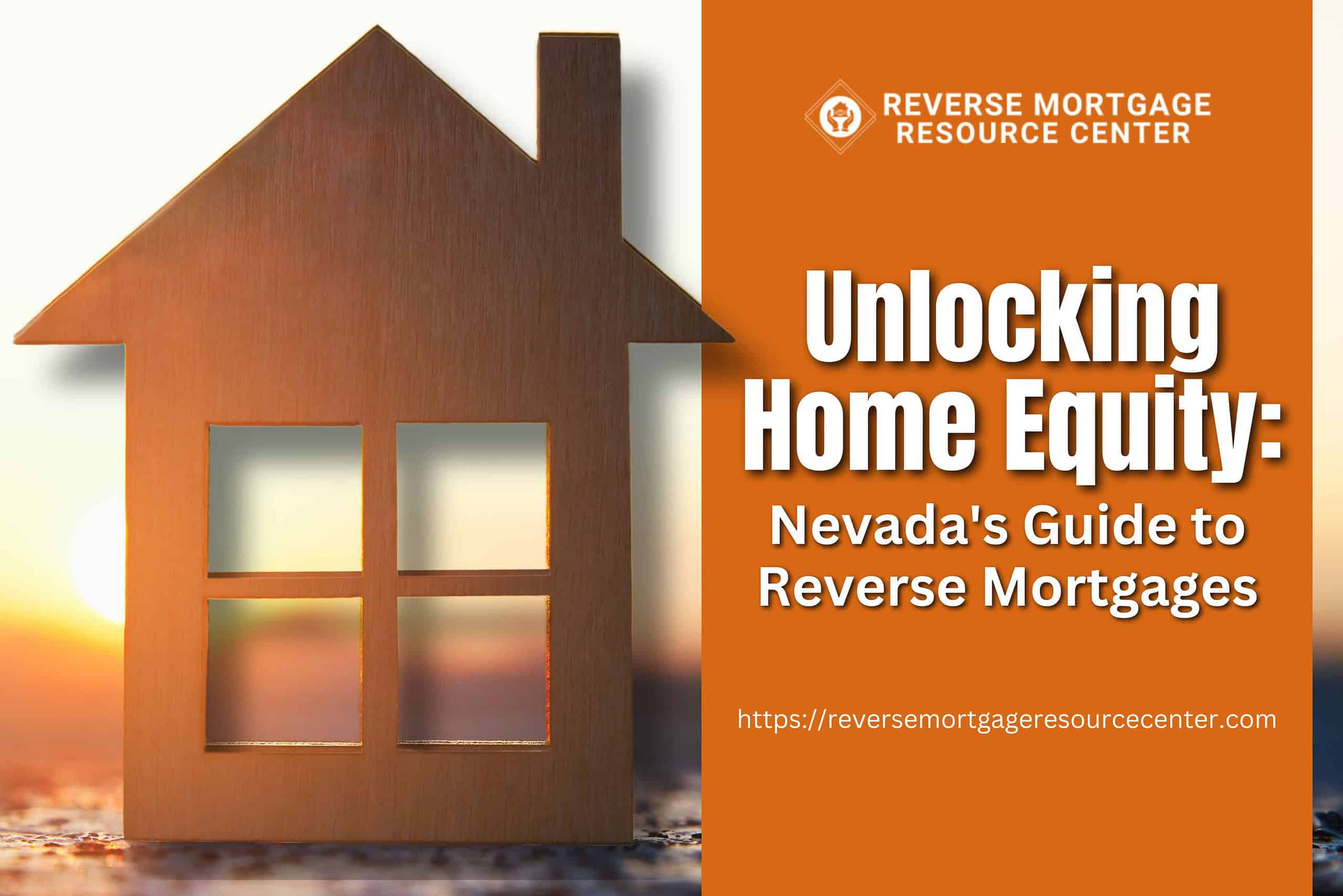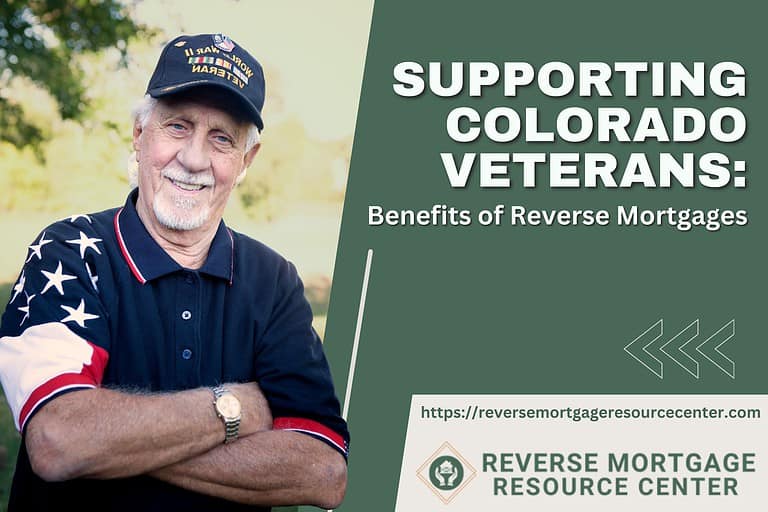Unlocking Home Equity: Nevada’s Guide to Reverse Mortgages
Homeownership is a key financial milestone for many Nevada residents. A home can be a significant asset that generates wealth over time and provides shelter. Equity is the difference between the current market value of your home and the outstanding debt on your mortgage. While some homeowners may choose to downsize or sell their homes to access this equity, others are looking into reverse mortgages as an alternative. We will delve into the world of reverse mortgages in Nevada in this detailed guide, helping you understand how they work and whether they are the proper financial tools for you.
Understanding Reverse Mortgages
What Is a Reverse Mortgage?
A reverse mortgage is a one-of-a-kind financial product that allows homeowners aged 62 and up to access the equity in their homes. In contrast to regular mortgages, which require homeowners to make monthly payments to the lender, a reverse mortgage allows homeowners to receive disbursements of funds from the lender. These disbursements can be made as a lump sum, monthly installments, or a line of credit.
How Do Reverse Mortgages Work?
The mechanisms of a reverse mortgage differ significantly from those of a traditional mortgage. Here’s a simplified explanation:
Loan Origination: You apply for a reverse mortgage through a Federal Housing Administration (FHA)-approved lender. The lender determines your eligibility based on your age, property value, and the equity you have in your home.
Payment Structure: Once accepted, specify how you want to receive the funds. Depending on your financial needs, you can choose a lump sum, monthly installments, or a line of credit.
No Monthly Payments: One of the most notable differences between a reverse mortgage and a standard mortgage is that you are not forced to make monthly mortgage payments. Instead, as interest accumulates, the loan balance climbs over time.
Repayment: The debt becomes due when you move out, sell your home, or pass away. At this stage, you or your heirs often pay off the loan balance by the sale of the residence. If the sale revenues of the home surpass the loan sum, the remaining money is distributed to you, or your estate and heirs.
Types of Reverse Mortgages
There are three main types of reverse mortgages in Nevada:
Home Equity Conversion Mortgage (HECM): The FHA insures the most common type of reverse mortgage, the Home Equity Conversion Mortgage (HECM). HECMs provide a variety of disbursement alternatives and are governed by tight restrictions and lending limits.
Single-Purpose Reverse Mortgage: Some state and local government bodies and nonprofit organizations provide single-purpose reverse mortgages. They are usually utilized for specific objectives like house repairs or property taxes.
Proprietary Reverse Mortgage: Private loans that the FHA does not insure are proprietary reverse mortgages. They are frequently appropriate for high-value property owners wanting to access more home equity.
Pros and Cons of Reverse Mortgages
Before committing to a reverse mortgage, thoroughly examine the pros and cons:
Pros
Access to Home Equity: Reverse mortgages allow you to access the equity you’ve built up in your house without selling it or moving out.
No Monthly Mortgage Payments: You do not need to make monthly mortgage payments, which can free up cash flow for other obligations.
Flexible Disbursement Options: You can receive the funds in a flat sum, monthly installments, or as a line of credit.
Stay in Your Home: You can continue to live in your home as long as it is your primary residence.
Non-Taxable: The monies from a reverse mortgage are not normally considered income and are therefore not taxable.
Cons
Accruing Interest: Because you aren’t required to make monthly payments, the interest on the loan continues to compound, potentially lowering your home equity over time.
Loan Costs: Reverse mortgages might have substantial upfront fees such as origination fees and mortgage insurance payments.
Impact on Heirs: When the loan matures, your heirs’ inheritance may be reduced since they will have to repay the loan debt, which is often done through the sale of the home.
Home Equity Reduction: As the loan balance grows over time, your property may have less equity.
Nevada’s Unique Considerations for Reverse Mortgages
State Regulations
Nevada has its own set of reverse mortgage legislation and standards that homeowners should be aware of:
Mandatory Counseling: Before qualifying for a reverse mortgage in Nevada, homeowners must go through mandatory counseling to fully understand the loan’s ramifications.
Financial Assessment: Lenders must undertake a financial evaluation to establish if you can cover ongoing obligations such as property taxes and insurance.
Property taxes: To be eligible for a reverse mortgage, homeowners must keep their property taxes current.
Condominiums: Because Nevada has particular requirements regulating reverse mortgages for condominiums, it’s critical to understand these regulations if you live in one.
Eligibility Criteria
To be qualified for a reverse mortgage in Nevada, you must meet the following requirements:
Age: You must be at least 62 years old.
Homeownership: The property must be your primary residence, with considerable equity.
Financial Assessment: As previously stated, lenders will analyze your financial condition to ensure you can meet ongoing expenses.
Making an Informed Decision
Before getting a reverse mortgage in Nevada, consider your financial goals, long-term ambitions, and how a reverse mortgage fits into your overall financial strategy. Here are some guidelines to help you make an educated decision:
1. Consult a Financial Advisor
Discuss your financial circumstances with a knowledgeable financial advisor who can assist you in determining whether a reverse mortgage is the best option for you.
2. Understand the Costs
Understand all the charges of a reverse mortgage, such as origination fees, closing costs, and recurring expenses.
3. Explore Alternatives
Consider other ways to access your home equity, such as downsizing, obtaining a home equity line of credit (HELOC), or investigating other financial products.
4. Review State Regulations
To ensure compliance, familiarize yourself with Nevada’s specific reverse mortgage legislation and procedures.
5. Educate Yourself
Take the time to educate yourself on the many types of reverse mortgages, payment alternatives, and how they function.
6. Discuss with Family
If you have heirs or family members who will be affected by your decision, communicate openly and honestly with them about your intentions.
REVERSE MORTGAGE RESOURCE CENTER ~LIVE LIFE ON YOUR TERMS~
Our Lending Team has been serving our clients since 2004. We are passionate about serving our clients with integrity to help them achieve their financial goals.







